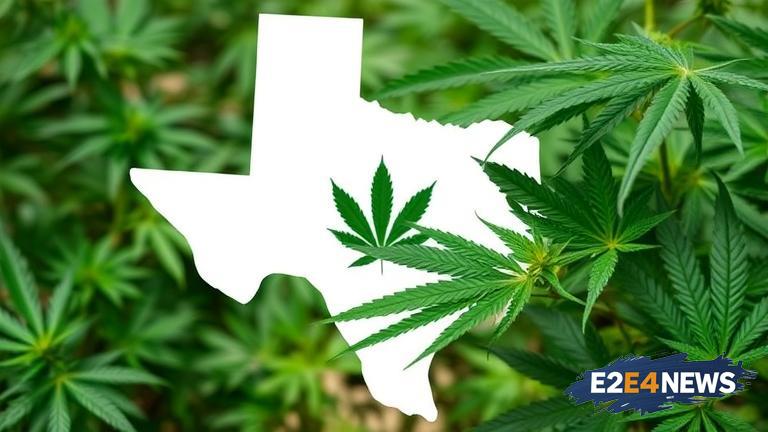The state of Texas has recently introduced a ban on THC cannabis products, which has been met with a mix of reactions from the public. The ban, which was signed into law by Governor Greg Abbott, prohibits the sale and possession of cannabis products containing more than 0.3% THC. This move has been seen as a step backwards by many in the cannabis industry, who argue that it will harm businesses and limit access to medicinal cannabis for patients in need. On the other hand, supporters of the ban claim that it will help to reduce the risk of cannabis-related crimes and protect public health. The ban has also raised concerns among law enforcement officials, who will be responsible for enforcing the new law. Some have expressed concerns about the difficulty of distinguishing between legal and illegal cannabis products, which could lead to confusion and potential miscarriages of justice. The cannabis industry in Texas has been growing rapidly in recent years, with many businesses investing heavily in the production and sale of cannabis products. The ban is likely to have a significant impact on these businesses, which could lead to job losses and economic instability. Despite the ban, many cannabis advocates remain optimistic about the future of the industry in Texas. They point to the growing public support for cannabis legalization and the potential for the state to reconsider its stance in the future. In recent years, there has been a shift in public opinion on cannabis, with many people now supporting legalization for both medicinal and recreational use. This shift has been driven in part by the growing body of research on the potential health benefits of cannabis, as well as the economic benefits of a regulated cannabis industry. The ban on THC cannabis products in Texas is not the only example of a state imposing restrictions on cannabis. Other states, such as Idaho and Nebraska, have also implemented bans or restrictions on cannabis products. However, many other states have taken a more permissive approach, allowing for the sale and possession of cannabis products for both medicinal and recreational use. The debate over cannabis legalization is complex and multifaceted, with different stakeholders having different opinions and interests. While some people see cannabis as a dangerous drug that should be strictly controlled, others see it as a valuable medicine that should be made available to those in need. The issue is also closely tied to issues of social justice and racial equity, as communities of color have been disproportionately affected by the war on drugs. As the debate over cannabis legalization continues, it is likely that we will see more states reconsidering their stance on the issue. In the meantime, the ban on THC cannabis products in Texas is likely to remain a contentious issue, with many people on both sides of the debate passionately arguing their case. The future of the cannabis industry in Texas remains uncertain, but one thing is clear: the issue of cannabis legalization is not going away anytime soon. The ban has also raised questions about the role of the federal government in regulating cannabis, as cannabis remains a Schedule I controlled substance under federal law. This has created a complex and often confusing regulatory landscape, with different laws and regulations applying at the state and federal level. As the cannabis industry continues to evolve, it is likely that we will see more calls for federal reform and a clearer regulatory framework. The ban on THC cannabis products in Texas is just one example of the challenges and complexities of regulating cannabis, but it highlights the need for a more nuanced and informed approach to the issue. By considering the perspectives of different stakeholders and weighing the potential benefits and risks of cannabis legalization, we can work towards a more rational and effective approach to regulating this complex and multifaceted issue.
